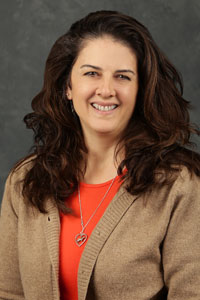The author and her husband, Duane, own and operate a 550-cow dairy in Cochranville, Pa.

Ranking Congressman G.T. Thompson recently said that he “never thought a leadership skill in agriculture would be storytelling, but it is one of the most important tools for farmers.” He also said that we need to “talk to people that we normally don’t talk to.”
This certainly has been the case for me during my time as chair of Dairy Management Inc. and U.S. Farmers and Ranchers in Action. A few years ago, I was preparing for a meeting at the United Nations and Krysta Harden, the CEO of the U.S. Dairy Export Council, told me, “Not everyone’s going to like you when you speak about sustainability.”
That was great advice. I would like to think that everyone appreciates what we do for the environment and that they want to hear stories of our sustainable farming practices. But that is not the case. There are loud voices out there that would like to do away with animal agriculture. This makes it even more imperative that our voices are there.
I was shocked the first time I was on a Zoom call with some anti-livestock people. I will say that it is much easier to type on a keyboard in these situations than it is to address people face-to-face, but both methods of communication are critical.
Being a voice in areas that are not necessarily dairy friendly is difficult. As infuriating as it is, rising above their tactics and staying calm, kind, and reasonable will be the better result in the end. After all, we have true science, solid practices, and the best source of protein.
My experience as a county dairy princess handed me my first tools to talk about my farm with ease and confidence. I was usually speaking in front of people who were eager to learn more about my dairy farm and hear about my experiences. Talking about my farm and the nutritional value of dairy products wasn’t a great challenge for me.
My next level of advocacy training came from the Young Cooperator program through the former Atlantic Dairy Cooperative. Duane and I enjoyed being involved in this program, and it gave me additional tools to communicate in controversial settings.
The Holstein Association’s Young Dairy Leaders Institute topped off our training and strengthened our ability to share our farm’s story. We learned to effectively answer the tough questions, bridge back to our main talking points, and how to interact with an activist.
All of our farms have amazing facts and stories that we can share. The dairy industry equips us on many fronts to do this. Our local and national checkoff provides training sessions for farmers, making sure the voices are genuine, amplified in the right area, and cast over a variety of farmers and farming styles. In addition, ag commodities and ag businesses spend resources and energy toward this effort both domestically and internationally.
All of these efforts are happening because agriculture is under a microscope of misconceptions. The opposition is well financed and a particular audience that is convinced we do not care about our planet.
The anti-livestock voices purposely get our messages wrong. If we don’t have a voice to stand up to these misconceptions, their loud complaints and ridiculous, unhealthy products will be more widely accepted. Ignoring their voices will not make them go away. It just gives them more ammunition to define us.
We have cared for the environment, nourished others with our product, and cared for our animals for decades. This is not a new way of life for us. What is new is that our voice matters.
Our advantage is that we have a safe, affordable, and nutritious protein source that can be produced across the globe. Each part of the world has unique needs and farming methods, but all people need food.
We must tell the truth about what we do. We must make sure others know the value of wholesome and natural. And we must tell them about the progress that our farms are making as it relates to the environment.
Being a voice for agriculture looks different for each one of us. Experiences and opportunities will come your way that I will never see and vice versa, but each one of us has a platform to tell our story.
I have seen agendas shift because we elevated awareness to the science and story sharing. It took a lot of voices from many ag sectors coming together with strong, progressive, and unified messages that took hold in these meetings.
I am excited for the next 20 years. Yes, the battle for livestock and our lifestyle is ongoing, and I do not anticipate that will change. But I also see more farmers willing to step up, taking a stand for agriculture, and being a strong voice in areas that are not always friendly. That gives me hope.








